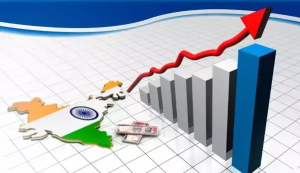Throughout recent history, a few large countries have retained unhinged control over world markets and market development. Economic stability from rich countries has come from the political stability that other nations have not had the privilege to enjoy. Emerging market economies (EME’s) have only recently entered the limelight because of newfound political stability in regions that are historically unstable. The impact of politics on EME’s should not be understated.
As business has changed, EME’s have pioneered their own methods of breaking through the worldwide markets. A large portion of EME growth is directly related to foreign direct investment (FDI). Since a majority of EME’s don’t have local venture capitalists who have enough money to improve the business climate on a macro scale, countries look for foreign ways to gain capital. However, when analyzing the relationship between the World Bank’s Political Stability and Absence of Violence index and the amount of FDI, it is clear that there is more than simply a correlation. Countries with widespread violence and civil conflict rank lowest in FDI. Even nations that have high GDP’s such as Brazil and India still have lower ease of business rankings and economic growth than nations such as Poland.

The correlation between increased stability and economic growth is also proved by monitoring the growth in amount of FDI. As Indonesia eliminated corruption and created a safe climate for business growth, FDI grew by 66%, whereas “due to Ukraine’s political turmoil…FDI intensity [declined] from 4.5% of total GDP in 2012 to 2.1% in 2013” (Euromonitor, 2014). Many experts indicate that India is going to be the next huge EME, however, their growth has not occurred when expected, as India has a terrible government and social system. Corruption within the government has hindered FDI and decreased the total amount of investment that is in India. As India begins to become more tolerant, and more groups of people work together rather than against each other, their economy will boom.

Ultimately, the governments that represent their people must realize that creating a safe space for businesses to grow is the most important thing to do. By stimulating businesses to grow within EME’s, employment goes up, income equality goes down, and infrastructure improves. For businesses to exist successfully, governments must strive for political stability, stay away from wars within their territories, and pass legislation that assists economic growth. If current EME’s implement sustainable policies, their leverage on the world market will grow, and help their citizens.
References:
Changes in Political Stability Impact Business Environments in Emerging Markets. (2017, July 10). Retrieved November 10, 2017, from http://blog.euromonitor.com/2014/11/changes-in-political-stability-impact-business-environments-in-emerging-markets.html
Pictures:
https://www.quora.com/How-is-the-current-American-going-to-help-an-emerging-economy-like-India
https://www.linkedin.com/pulse/emerging-markets-eagles-nest-mahmoud-refaat
Word Count: 391